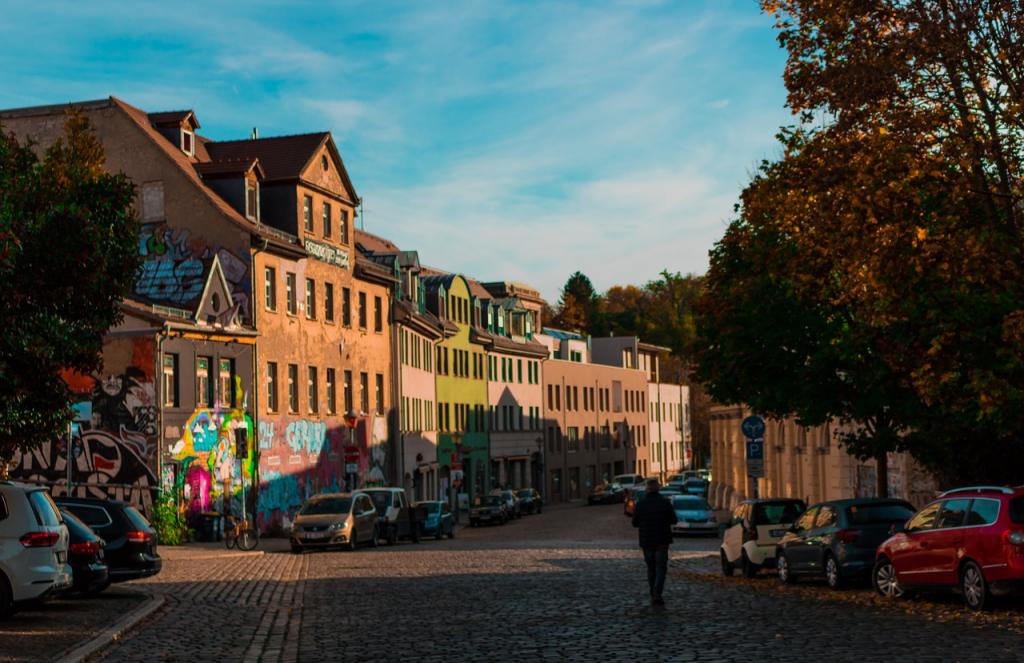Thessaloniki gets ready for its metro launch in November
The underground rapid transit lines have been under construction for almost two decades due to various project delays
 TheMayor.EU logo
TheMayor.EU logo 
The hydrogen expansion in Weimar is funded by multiple state and federal bodies in Thuringia and Germany
Local authorities have said that as much as 30 buses could be on the streets of the city by next year
Yesterday, the City of Weimar in Germany announced their new project for sustainable mobility. It includes the construction of a green hydrogen filling station and buses that can hit the local streets as soon as next year.
The project is financed by the state government of Thuringia, with Environment Minister Anja Siegesmund personally handing local authorities the funding decision, granting them 3 million euros.
Weimar authorities have decided to finance their push towards introducing hydrogen buses by casting a wide net for government funding. For instance, the electrolysis filling station will be funded to the tune of 1.25 million euros by the Federal Ministry of Digital Affairs and Transport.
At the same time, the Thuringian Ministry of Energy will fund the purchase of 30 buses, which will transform Weimar into a showcase early adopter of hydrogen driven mobility.
Furthermore, Bauhaus University will also chip in by providing scientific support in the operation of the new system. In fact, the local electric car charging station expansion has been based on traffic flow planning done by the University since 2017.
The project also plans to entangle local transport and municipal utilities to create an energy-efficient network, based on that hydrogen infrastructure. Mayor Peter Kleine was quoted in a press release, saying: “Hydrogen can be used not only for clean mobility but also for an efficient supply of electricity and heat and as a basis for alternative fuels or as a process gas in industry. Given the current challenges in the energy sector, it is good if we actively promote new technologies.”
Stefan Reindl, a spokesman of TEAG, the Thuringian energy company, said that hydrogen can be used for much more than a fuel source for sustainable mobility. He explained that it can also power homes or fuel industrial capacities, which represents a way for local demand to break away from Russian import reliance.

The underground rapid transit lines have been under construction for almost two decades due to various project delays

Now you can get your wine in Talence by paying directly in Bitcoin

That’s because the state has to spend money on updating the railway infrastructure rather than subsidizing the cost of the popular pass

Rethinking renewable energy sources for the urban landscape

The examples, compiled by Beyond Fossil Fuels, can inform and inspire communities and entrepreneurs that still feel trepidation at the prospect of energy transition

Now you can get your wine in Talence by paying directly in Bitcoin

The 10th European Conference on Sustainable Cities and Towns (ESCT) sets the stage for stronger cooperation between the EU, national and local level to fast track Europe's transition to climate neutrality.

At least, that’s the promise made by the mayor of Paris, Anne Hidalgo

The underground rapid transit lines have been under construction for almost two decades due to various project delays

At least, that’s the promise made by the mayor of Paris, Anne Hidalgo

Hostal de Pinós is located in the geographical centre of the autonomous region

Despite its church-y name, the district has long been known as the hangout spot for the artsy crowds

Urban dwellers across the EU are having a say in making their surroundings friendlier to people and the environment.

Forests in the EU can help green the European construction industry and bolster a continent-wide push for architectural improvements.

Apply by 10 November and do your part for the transformation of European public spaces

An interview with the Mayor of a Polish city that seeks to reinvent itself

An interview with the newly elected ICLEI President and Mayor of Malmö

A conversation with the Mayor of Lisbon about the spirit and dimensions of innovation present in the Portuguese capital














